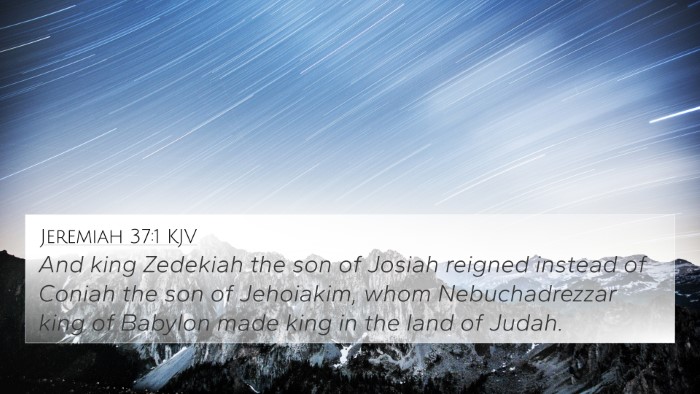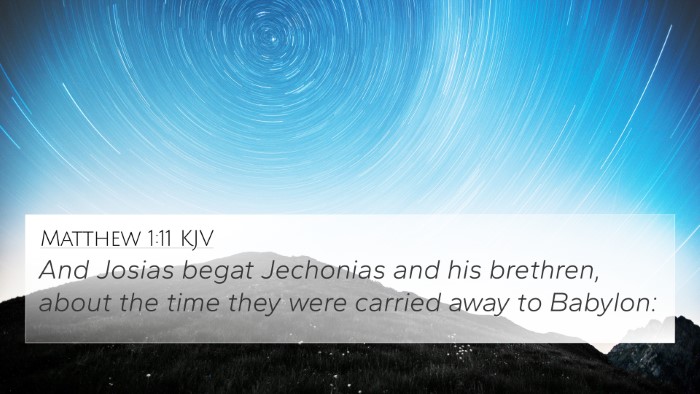Interpretation of Jeremiah 22:24
Jeremiah 22:24 states: "As I live, saith the LORD, though Coniah the son of Jehoiakim king of Judah were the signet upon my right hand, yet would I pluck thee thence;" This verse is a proclamation from God regarding the fate of the king of Judah, Coniah (also known as Jeconiah), emphasizing God's sovereignty and judgment.
Contextual Background
The context of this verse is found in the period of the declining kingdom of Judah. Jeremiah served as a prophet during a time of great turmoil and impending judgment upon the nation for their unfaithfulness to God. The significance of this verse lies in its implications on kingship and divine authority.
Thematic Analysis
This verse speaks to the themes of:
- Divine Sovereignty: The passage indicates that God holds the ultimate authority over nations and rulers.
- Judgment: It reflects the judgment that befalls those who have strayed from God's commandments.
- Conditional Promises: The "signet upon my right hand" symbolizes authority and approval, which can be revoked if the individual turns away from God.
Biblical Cross-References
Jeremiah 22:24 can be compared to several other scripture passages that enhance its meaning:
- Jeremiah 36:30: God declares judgment upon Jehoiakim for his actions.
- Matthew 1:12: The lineage of Jesus through Jeconiah is mentioned, highlighting the significance of this king in God's redemptive plan.
- Ezekiel 19:10-14: Symbolizes the royal lineage of Judah and its downfall.
- 2 Kings 24:8-16: Details regarding Jeconiah's reign and his exile.
- Isaiah 22:24: Discusses Eliakim, son of Hilkiah, who is given authority, contrasting with Coniah.
- Zechariah 11:8: Reflects the doom that awaits unfaithful shepherds.
- Lamentations 5:16: Expresses sorrow over the loss of royal dignity.
Interpretive Insights from Commentaries
Matthew Henry's Commentary: Henry emphasizes that God's declaration in this verse signifies the removal of the royal authority from Coniah due to his disobedience. He illustrates how even if Coniah were as significant as a signet ring, God could remove him entirely.
Albert Barnes' Commentary: Barnes discusses the implications of the rejection of Coniah and suggests it reflects a broader theological point about the rejection of Israel’s kingship in light of their infidelity to God. He highlights that this pronouncement points to God’s ultimate authority over human institutions.
Adam Clarke's Commentary: Clarke interprets this metaphor of the "signet" as signifying the utmost value and authority that God gives. However, the removal of the king serves as a warning about the consequences of turning away from divine expectations.
Application and Reflection
The implications of Jeremiah 22:24 resonate significantly with believers today. It serves as a reminder of God's sovereignty and the seriousness of maintaining faithfulness in one’s walk with God. Reflection on such scripture urges believers to consider the consequences of their actions and their relationship with divine authority.
Conclusion
Jeremiah 22:24 is a pivotal verse that warns against disobedience while revealing God's unyielding sovereignty. By exploring its themes, cross-references, and interpreting insights from various commentaries, one can grasp the depth of this scripture while drawing connections to the broader narrative of the Bible.










